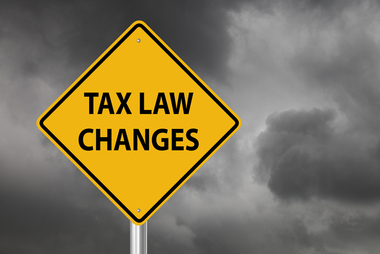Annual Tax Adjustments for 2023
The Internal Revenue Service has released the tax year 2023 annual inflation adjustments for dozens of tax provisions, including the tax rate schedules and other tax changes. Here are some of the key changes.
Standard deduction
The standard deduction for married couples filing jointly for tax year 2023 rises to $27,700, which is up $1,800 from the previous year. For single taxpayers and married individuals filing separately, the standard deduction rises to $13,850 for 2023, up $900, and for heads of households, the standard deduction will be $20,800 for tax year 2023, up $1,400 from the amount for tax year 2022.
Marginal rates
For tax year 2023, the top tax rate remains 37% for individual single taxpayers with incomes greater than $578,125 ($693,750 for married couples filing jointly).
The other rates are:
- 35% for incomes over $231,250 ($462,500 for married couples filing jointly)
- 32% for incomes over $182,100 ($364,200 for married couples filing jointly)
- 24% for incomes over $95,375 ($190,750 for married couples filing jointly)
- 22% for incomes over $44,725 ($89,450 for married couples filing jointly)
- 12% for incomes over $11,000 ($22,000 for married couples filing jointly)
The lowest rate is 10% for incomes of single individuals with incomes of $11,000 or less ($22,000 for married couples filing jointly).
Alternative minimum tax
The AMT exemption amount for tax year 2023 is $81,300 and begins to phase out at $578,150 ($126,500 for married couples filing jointly for whom the exemption begins to phase out at $1,156,300). The 2022 exemption amount was $75,900 and began to phase out at $539,900 ($118,100 for married couples filing jointly for whom the exemption began to phase out at $1,079,800).
Estate tax
Estates of decedents who die during 2023 have a basic exclusion amount of $12,920,000, up from a total of $12,060,000 for estates of decedents who died in 2022. Note that many states have their own estate taxes, with lower exclusion amounts.
New for 2023
The Inflation Reduction Act extended certain energy related tax breaks and indexed for inflation the energy efficient commercial buildings deduction beginning with tax year 2023. For tax year 2023, the applicable dollar value used to determine the maximum allowance of the deduction is $0.54 increased (but not above $1.07) by $0.02 for each percentage point by which the total annual energy and power costs for the building are certified to be reduced by a percentage greater than 25%.
More information online
A more complete summary is available on the IRS website. The full release—about 28 very technical pages—is also available for downloading. Since many of the provisions are complex, taxpayers should work with a professional to see how their situation is affected.

Copyright 2022.